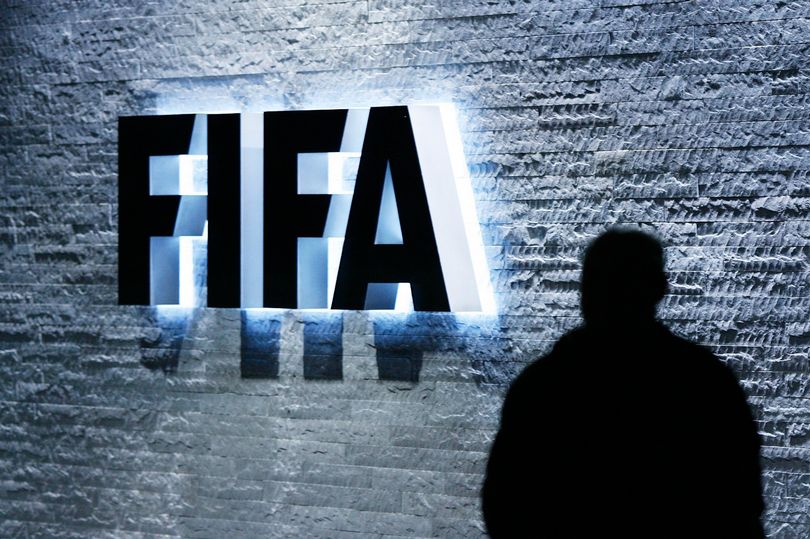The majority of football fans’ familiar landscape may be about to undergo one of the biggest changes in almost thirty years. It coincides with possible new regulations that Advocate General Maciej Szpunar alluded to in his speech to the Court of Justice of the European Union (CJEU).
Lassana Diarra, a former midfielder for Chelsea and Arsenal, is about to get the outcome of his lawsuit against FIFA, the body that oversees international football, after more than a decade of anguish and unfair treatment. It’s possible that the regulations governing player transfers may be ruled inappropriate on Friday, October 4.
Szpunar referred to the present FIFA restrictions as “draconian” while discussing potential violations of EU standards. However, why? And what would be the possible results?
It’s all because to Diarra, who relocated from Le Havre, France, to Chelsea in 2005. Two years later, he went to Arsenal, Portsmouth in just six months, and, amazingly, Real Madrid signed him a year later. His fortunes, however, declined once he left Madrid in September 2012, according to football.london.
He signed with Anzhi Makhachkala, a wealthy Russian team, but after just one season, he found himself relocating to Lokomotiv Moscow. He lost his spot despite a strong start, and this is where the concerns that are being discussed in court now come into play.
Lassana Diarra swiftly faded into the background at Lokomotiv Moscow, and the club attempted to reduce his pay. Not unexpectedly, Diarra declined to accept these stipulations.
Lokomotiv terminated his contract with three years left on it, claiming he had missed several training sessions as their relationship soured. Following the ruling of a dispute resolution panel, FIFA banned Diarra after the club filed a lawsuit against him for breach of contract.
In response, Diarra filed a complaint with the Court of Arbitration for Sport (CAS), claiming that Lokomotiv had overpaid for his move and was owed more than £15 million in compensation. Diarra was forced to pay just under £10 million plus interest as a result of the CAS verdict.
He said, “I will accept the situation as I have always done in the past,” at the moment. But his problems were far from over.
A path back into European football was presented to him by Belgian team Royal Charleroi, but they required guarantees from FIFA and the Belgian FA that they would not be held accountable for Diarra’s compensation. Charleroi canceled their offer after these assurances were not given, leaving Diarra without a club.
The player pursued the legal fight with the support of his legal team, which included Jean-Louis Dupont, who was well-known for defending Jean-Marc Bosman in a historic UEFA contract dispute, the French players’ union (UNFP), and the international players’ union FIFpro.
Diarra’s career took a setback when FIFA declined to provide the International Transfer Certificate (ITC), which is required for player registration and is contingent upon ongoing discussions between Lokomotiv and Anzhi. The CJEU is currently considering the legality of FIFA’s conduct.
The hearing has raised the possibility of revisions to the ITC laws, which serve as the foundation for the worldwide transfer system. The remarks made by Advocate General Szpunar in April are especially instructive. “There can be little doubt as to the restrictive nature of FIFA’s regulation on the status and transfer of players,” he stated.
“By their very nature, the contested provisions limit the possibility for players to switch clubs,” he continued, adding that “the contested provisions necessarily affect competition between clubs on the market for the acquisition of professional players.”
This raises the question: what are the implications? “The consequences of a player terminating a contract without just cause are so draconian that it is highly unlikely that a player will go down this route,” Szpunar says.
“The contested provisions are designed in such a way as to have a deterrent effect and send a chill down each player’s spine.” To put it briefly, players are essentially forced to stay with their existing clubs because they are afraid of violating their contracts, which prevents them from filing complaints.
If the current guidelines are determined to be illegal, there may be a quick and substantial change. Though such opinions carry weight, the situation is not yet settled; the CJEU has the ability to contest its Advocate General’s position.
FIFA’s ability to demonstrate that their system serves the interests of the sport rather than just themselves will be crucial. If they are unable to prove this, the transfer structure for football may undergo a radical change.
“The transfer system in football, as we know it, will likely fall as a practical outcome of Diarra,” declared sports legal specialists Melchior Wathelet, a former CJEU Advocate General, Robby Houben, and Oliver Budzinski in June of last year.
READ MORE: https://sportip.co.uk
